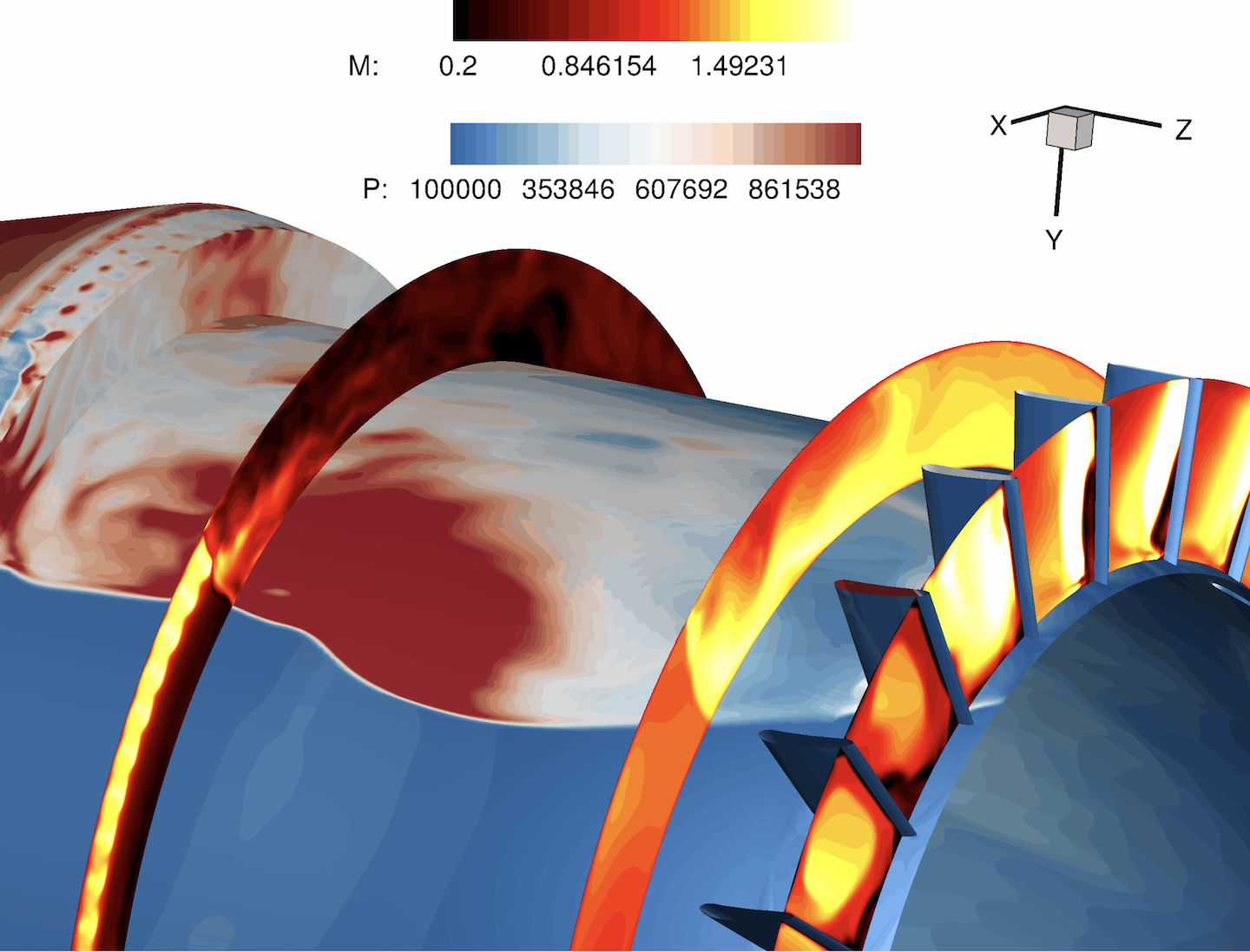Team led by Purdue professor receives industry award for work done on RCAC’s Bell cluster
A team led by Purdue professor Guillermo Paniagua was honored with the “Best HPC Collaboration” award in HPCwire’s 2023 Readers’ and Editors’ Choice Awards for its work developing novel engine components that will have implications for decarbonized power generation. The team used the Rosen Center for Advanced Computing (RCAC)’s Bell supercomputer to run simulations.
The award was announced yesterday, Nov. 13, at the SC23 supercomputing conference in Denver, Colorado. HPCwire is a leading publication covering news and events in the supercomputing industry.
“We are honored to receive this recognition from HPCwire, and it reflects the hard work and dedication of the many people involved in this multi-institution collaboration,” says Paniagua, a professor of mechanical engineering, who moved to Purdue in 2014 primarily so he could pursue research on advanced turbines for clean power and propulsion at a faster pace.
“This award shines a light on Purdue's world-class experimental and computational resources, including our advanced turbine facilities tailored for pioneering small core clean aviation propulsion.”
Paniagua, who is also the head of the Purdue Experimental Turbine Aerothermal Laboratory (PETAL), and his team are studying how to replace conventional combustors with hydrogen-fueled rotating detonation combustors, taking advantage of a combustor pressure increase to reduce the number of compressor stages. This could lead to smaller and lighter engines.
Hydrogen is an attractive future fuel because of its high energy-to-mass ratio and near-zero greenhouse gas and toxic gas emissions. A preliminary analysis indicates that the thermal efficiency could be increased by 10%.
This project aims to develop a novel, compact combustor-turbine strategy to transition this high-speed, unsteady flow from rotating detonation combustors to industrial turbines.
Paniagua and his colleagues have developed several turbine families that efficiently harness the rotating detonation power.
The team used Bell for various aspects of the project, including to:
- perform numerous computational fluid dynamic simulations of the combustor,
- optimize the design of the turbine, which involved running hundreds of direct evaluations of turbine geometries to maximize efficiency and reduce pressure distortion,
- and design the turbine’s diffuser to ensure the correct temperature and pressure profile upstream of the turbine.

They also used Argonne National Laboratory’s Laboratory Computing Resource Center Bebop supercomputer to perform high-fidelity simulations to understand the detailed physics within the combustor.
The research is funded through the Department of Energy’s University Turbine Systems Research program.
Rolls-Royce has an advisory role on the project and has provided an M250 helicopter engine and test bed for concept demonstration. Rolls-Royce engineers meet regularly with the team to offer guidance.
Terry Meyer, professor of mechanical engineering; Carson Slabaugh, the Paula Feuer Associate Professor of Aeronautics and Astronautics; James Braun, assistant professor of mechanical and aerospace engineering at North Carolina State University; and Pinaki Pal, senior research scientist at Argonne National Laboratory, are co-PIs on the project. The Rolls-Royce team includes Stan Clemens, Masha Folk, Matthew Bloxham, Matthew Grote, Timothy Unton and Andrew Eifert.
In addition, Sergio Grasa, Andrea Ruan, Jack Grunenwald, Ethan Plaehn, Nicholas Strahan, Brandon Reid, Rohan Gejji, Bebe Wang, Kanan Karimli, Zach Ayers, Austin Webb and Venkat Athmanathan are essential research collaborators responsible for many areas ranging from turbine/combustor/diffuser design to laser diagnostics.
The Bell community cluster, which came online in 2020, debuted as number 431 on the list of the world’s 500 most powerful supercomputers. Bell was the ninth Purdue community cluster to make the Top 500 list. Altogether, Purdue’s community clusters provide nearly 10 petaFLOPs to drive research at Purdue.
To learn more about the Bell community cluster or other RCAC resources, contact Preston Smith, executive director of research computing, psmith@purdue.edu or 49-49729.
